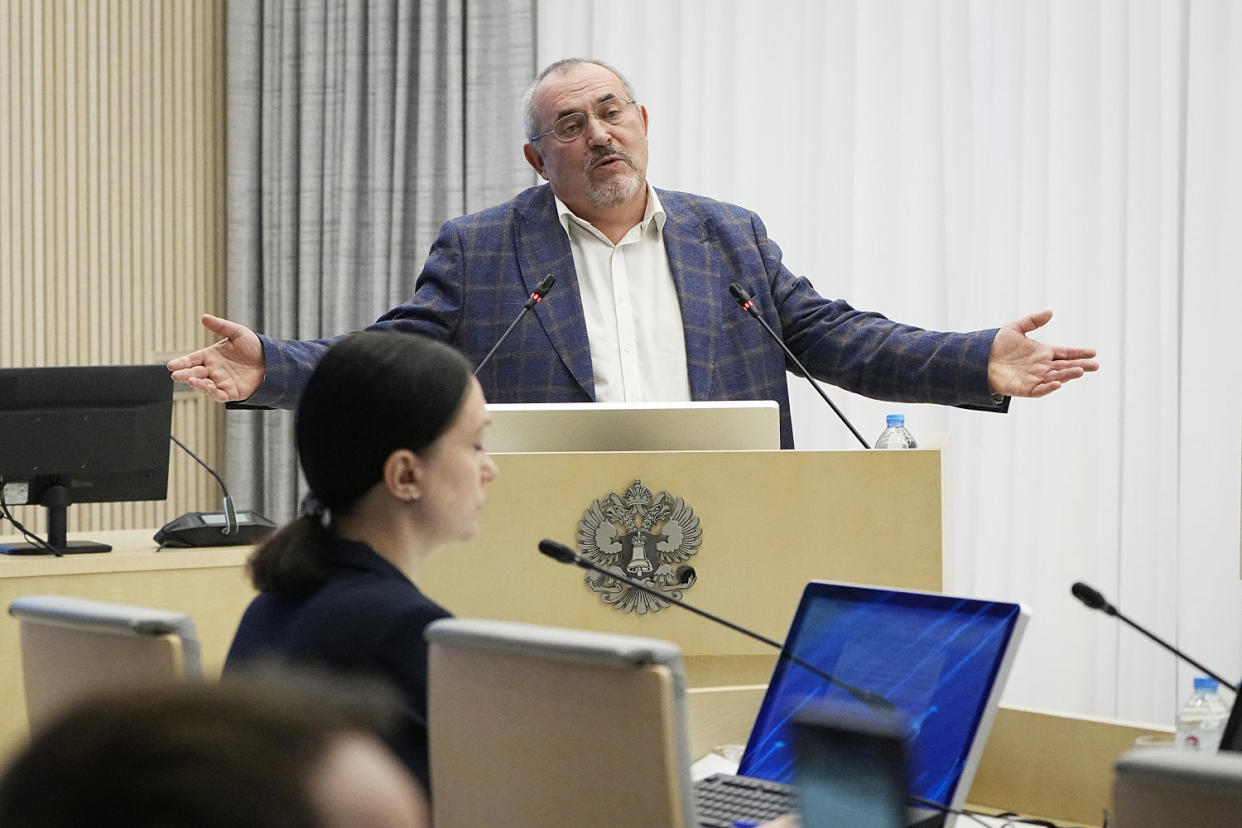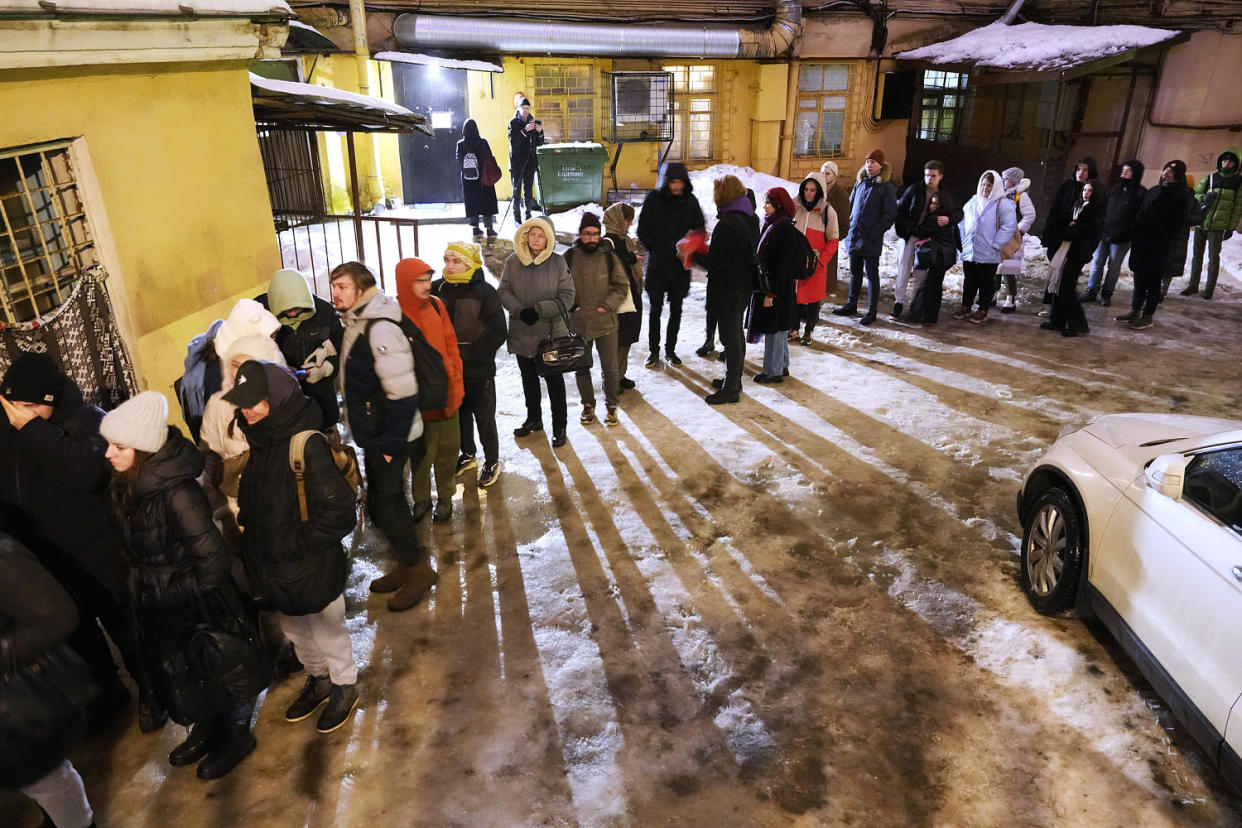Russia bars anti-war Putin critic from next month's election
Russian authorities have barred the only anti-war presidential campaigner from running against President Vladimir Putin in next month’s election, heading off a challenge from a man who garnered surprise levels of support as he channeled simmering discontent.
Boris Nadezhdin became an unexpected phenomenon in Russian politics with his rare public criticism of the war in Ukraine, presenting a headache for the Kremlin as it orchestrates Putin’s fifth term in power ahead of the March 15-17 presidential election.
Hundreds of people in cities across Russia lined up to give their signatures in support of Nadezhdin to allow him to be registered as a candidate by Russia’s Central Electoral Commission, an electoral procedure that the Kremlin often uses to weed out those who could seriously challenge Putin.
On Thursday, the commission ruled that thousands of the signatures were faulty, and the verified ones were not enough to register Nadezhdin.
Nadezhdin, 60, said on Telegram that he was disappointed in the decision and would appeal to the country’s supreme court.
“I ask you not to give up,” he told his supporters. “Something has happened that many could not believe in: citizens sensed the possibility of changes in Russia. It was you who stood in long lines to declare to the whole world: ‘Russia will be a great and free country,’” he added.

Ukraine war a ‘fatal mistake’?
His disqualification signals that the Kremlin has decided not to take the risk of allowing Nadezhdin on the ballot, even at the cost of further eroding the legitimacy of the campaign.
A seasoned, progressive-leaning politician who has been around since the 1990s, Nadezhdin, whose name partially translates from Russian as “hope,” criticized the war in Ukraine, calling it Putin’s “fatal mistake” — a rare public stance in the country where the regime’s loudest critics are either jailed, exiled or dead. He has called himself a “Russian patriot” who wants the country to repair its broken bonds with the West.
He has met with a group of soldiers’ wives whose protests have also been a thorn in the Kremlin’s side, and spoken out on issues of public concern, like widespread infrastructure problems that left many freezing in the Russian winter.
As Nadezhdin launched his campaign late last year, questions swirled about whether he was a Kremlin-approved figure whose only purpose was to give the election a veneer of legitimacy, and whether he would be allowed to be critical of the government if he were not doing so with authorities’ blessing.
He has vehemently denied those suggestions.

Nadezhdin has also managed to achieve the seemingly unachievable in Russian politics — drawing support from multiple prominent opposition figures, whose internal squabbles have long prevented them from uniting against the Kremlin. That includes supporters of the jailed opposition leader Alexei Navalny.
It appears that the Kremlin has been taken by surprise by that unity and the surge of apparent public support for Nadezhdin, despite claims by Putin’s spokesman that he was no rival to the Russian president.
It appears to have also been a surprise for Nadezhdin himself, who told Russian media that his popularity was indicative of the “demand for peace and changes” in the country.
“It is a very strange election because there is no real choice,” he told NBC News in an interview in Moscow in December, saying he wanted to challenge Putin for undermining Russian democratic institutions and steering the country to greater authoritarianism.
“I am ready for everything,” he said at the time.
Russian elections are often mired in irregularities and claims of fraud. It is extremely difficult for challengers to get their names onto a ballot at any level. Critics say that elections amount to little more than a sham, and Putin is all but guaranteed to win come March.
To get his name on the ballot, Nadezhdin had to collect at least 100,000 signatures from across Russia by the end of January to register his candidacy with Russia’s electoral commission, no small feat for a candidate who says his campaign is funded exclusively by crowdfunding.
Russians inside the country and expats abroad lined up outside his offices, viewing it as perhaps the only way to peacefully and legally show Moscow that there was support for an anti-war message amid a widespread crackdown on dissent.
Protests and public displays of criticism of the war have led to detentions and arrests, making opposition to it nearly impossible without great personal risk. The Kremlin insists that the number of Russians who do not support the war is tiny, and that a majority is firmly behind Putin.
While state media has been portraying Nadezhdin as a fool who is in over his head, it’s hard to tell the true extent of public support for his candidacy and message. Gauging public opinion is difficult in Russia, with virtually no independent pollsters left and people often too afraid to speak freely in the atmosphere of repression.
A recent survey by the independent pollster Levada Center showed that the level of support for the Russian armed forces in Ukraine remains high at 77%. The center’s December poll also showed that 85% of decided voters would cast their vote for Putin.
The electoral commission registered Putin without issue last month after state media reported more than 3.5 million signatures were collected in his support. Three other candidates have been registered so far, none of whom are likely to pose any real threat to the Russian leader’s hold on power.
